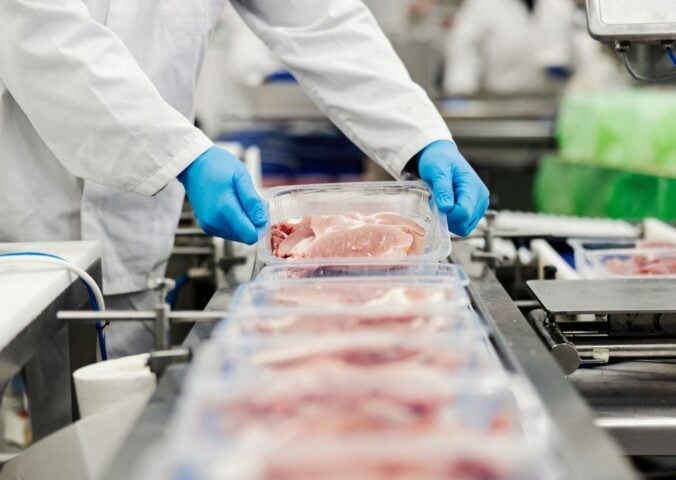COP27 has once again drawn criticism from climate activists for the inclusion of unsustainable meat and dairy items on menus.
Taking place in Sharm-el-Sheikh, Egypt, the annual UN climate crisis conference also gives attendees the opportunity to enjoy “bottomless cocktails.” In addition, a one-hour unlimited wine and beer package is on offer.
Confirmed menu options include a $100 beef medallion dish, a $50 seafood platter starter, and a $40 salmon concoction. Salmon is not native to Egypt, meaning that it will likely have been flown in from the Atlantic, thousands of miles away.
The menu is being hailed by multiple invested parties as yet another failure, on the part of the conference, to prioritize and address the roles of meat and dairy production in the worsening climate emergency.
Discussing the perceived hypocrisy, the Vegan Society released a statement. It said: “It’s really disappointing that such a significant climate change event as COP27 is serving up high environmental impact meat and fish sourced from another continent.”
Repeating last year’s mistakes
This is not the first time that a COP event has sparked debate. Last year’s COP26, held in Glasgow, was also met with disappointment. It was revealed that attendees ate multiple meat dishes and were transported via private jets.
Prior to the event, 53 non-governmental organizations reached out to UK ministers, as well as the COP26 president Alok Sharma. The cohort requested that animal agriculture and its impact on the climate be included as a vital topic of conversation. The request was denied, with pro-meat and dairy discourse given priority instead.
As an extra blow to climate campaigners, menus were meat-heavy. Beef (one of the most impactful foods), chicken, and dairy were all included. Such dishes were served despite calls for the conference to lead by example with a fully vegan menu. The decision was repeated for this year’s event.
Also following on from COP26 is the continued use of private jets. It’s estimated that around 400 private airplanes were used to bring delegates to the event. Supposed environmental steward King Charles III was included in their number. US President Joe Biden and Amazon founder Jeff Bezos also followed suit.
Speaking at the time, Matt Finch from the Transport and Environment campaign group said: “The average private jet emits two tons of CO2 for every hour in flight. It can’t be stressed enough how bad private jets are for the environment; it is the worst way to travel by miles.”
At least 36 private jets are confirmed to have landed in Sharm el-Sheikh ahead of the COP27 conference starting. Another 64 have also landed in Cairo.
A vegan menu would have sent a strong message
Opening the COP27 summit, UN secretary general Antonio Guterres delivered a powerful speech that warned world leaders that we are collectively on a “highway to climate hell.”
He continued to suggest two choices to delegates: work together to solve the crisis or sign a “collective suicide pact.”
Climate experts have issued similarly stark warnings, including Intergovernmental Panel on Climate Change (IPCC) reviewer Dr. Peter Carter. Discussing the planet’s rising temperature, Carter called it “global suicide” before reiterating his core belief that mainstream adoption of a vegan diet, across the world, is now a “survival imperative.”
Carter’s recommendation stems from meat and dairy production accounting for a minimum of 14.5 percent of greenhouse gas emissions. Both are also major drivers of deforestation.
Combined, these two endeavors ensure that more CO2 and methane are released into the atmosphere than can ever be sequestered. Methane is a particular concern, with the UN delivering its verdict that the planet needs to see a 45 percent reduction in emissions by 2030. This is essential, it claims, if we are to stand any chance of meeting the Paris Agreement and limiting global warming to 1.5°C.
Had the COP27 chosen to curate a fully plant-based menu for the two-week summit, it could have underscored the impact of meat and dairy on the climate crisis. In addition it could have potentially, opened the event up to wider conversation about the environmental benefits of vegan food.
“This is a real missed opportunity for world leaders to connect the issues of diet and climate and lead by example in showcasing a delicious, low impact, plant-based menu to highlight how such changes can make a huge difference to the future of the planet,” a spokesperson from the Vegan Society said.






